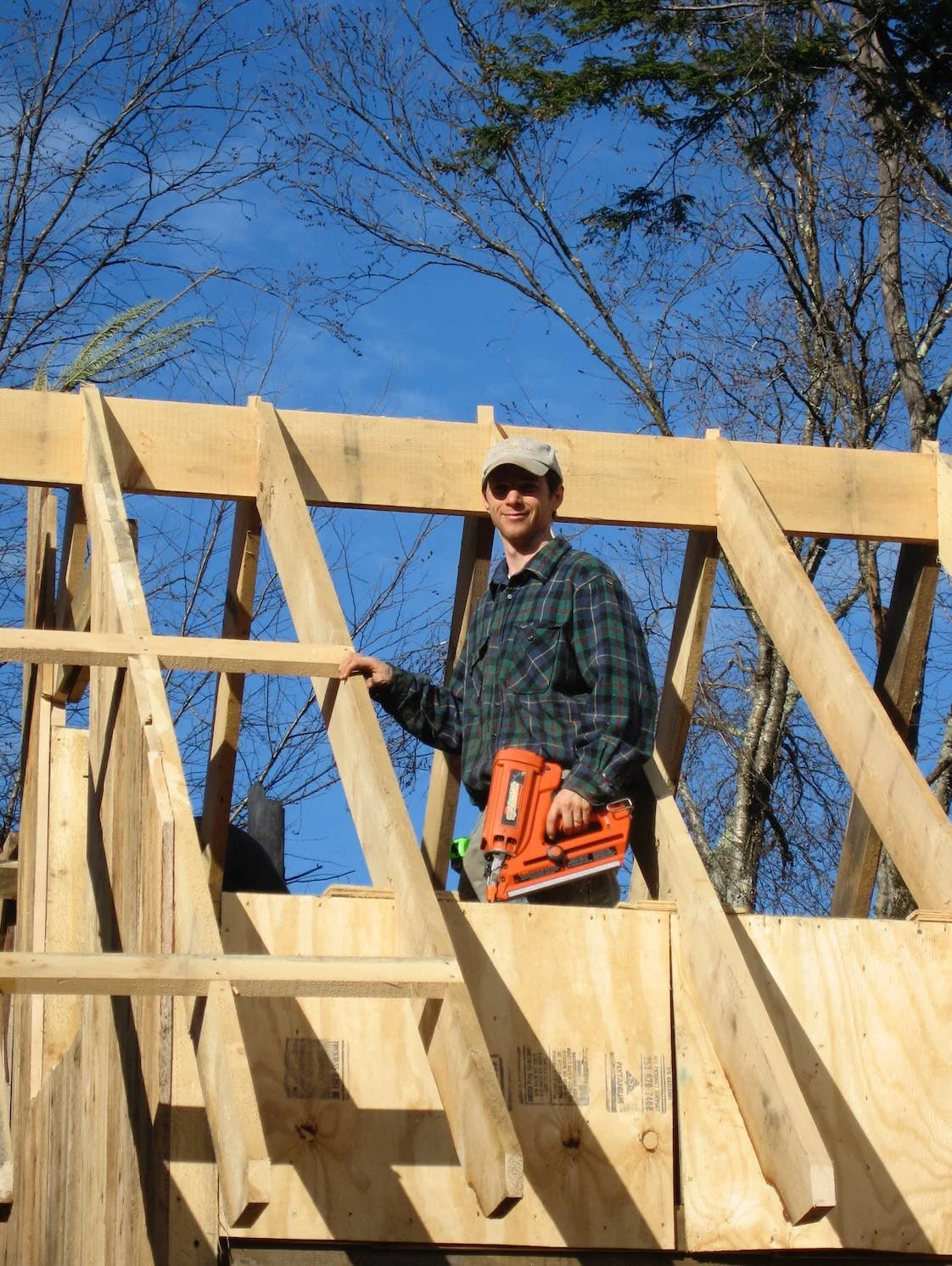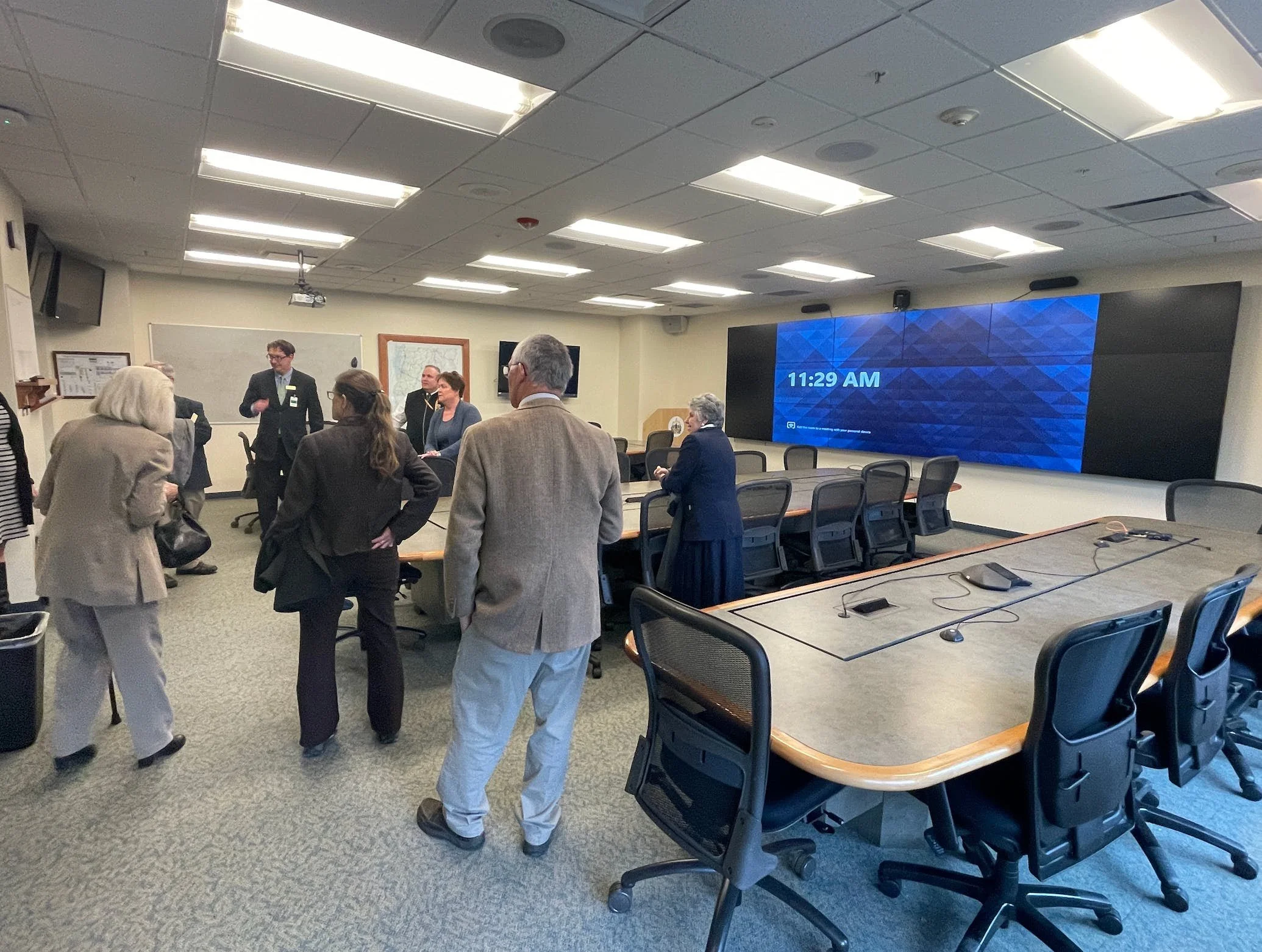“Yes” to a Clean Heat future
2023-04-21
Dear friend,
“Why would you have children?” is a question I hear way too often exchanged by our youth. I hear from our youth in so many ways that they don’t see a good future for themselves on planet Earth.
But Vermont’s youth are not alone. Many Halifax, Whitingham, and Wilmington residents I spoke with when running for office, and over the last few weeks on S.5, are afraid of our future.
Many in my community asked me to vote No on S.5. I listened to their concerns and discussed mine at length at a town hall meeting last Sunday, and in many phone and email conversations.
In the course of this and other long conversations, one thing I found no disagreement on is that we are all feeling and seeing the change in our long-term weather patterns. We are seeing the birds at the feeders earlier than ever.
Even the most senior resident I spoke to after our 30-inch March blizzard, can never recall extreme weather like we’re seeing. Seeing the massive hemlocks that fell under the weight of the snow, I also added driving over live, downed power lines to my experiences of living through major storms on Green River Road.
In Halifax after Tropical Storm Irene, we spent six times our annual road budget in repairs in a couple of months. The Town of Wilmington painted another flood mark on the wall, and Whitingham also flooded to levels never seen. Volunteers spent days retrieving debris from Lake Whitingham.
I marvel at the nonrenewable resources like diesel and road tar and the plastics that we’ve been able to use in recovering from events like this, and the land use impacts of gravel and sand extraction. I worry about resource depletion in our future.
A storm like Irene reminds of our vulnerabilities when we rely for heating and cooking on fossil fuels with far-away supply chains. I built a solar off-the-grid homestead because I didn’t trust the grid to be there for me when I needed it, or to use energy sources that fit my environmental and social values.
Building the barn for my off-grid solar array in 2009.
Over time, I put my home on the grid, benefiting from the peace-of-mind of having collective infrastructure work for me.
Most of us rely on the grid more with every year, not less. It is clear that our world is changing and we can better meet this challenge not by waiting longer for action, but by rising to the challenge.
Is S.5 the right answer to future-proof Vermont? I can’t say for sure. I anticipate hearing from a lot of neighbors who feel I voted against their wishes. I also heard from many residents who asked me to take the strongest possible action to prepare for our energy future.
I wish that we had a bill today in the House that Vermonters were united behind. This felt like the hardest vote the House has taken this session, even though S.5 passed resoundingly, 103 to 41 roll-call vote.
We are better able as humans to confront an emergency when we’re united, and we are not united on this.
As your Representative, I owe it to you to follow through on this vote with more hard work ahead. I will continue to be in dialogue on the development of the Clean Heat Standard. I will continue to try to work with my colleagues and constituents across the political spectrum in order to find consensus.
I will monitor the Commission's work closely while also working to advance my energy priority items, including investing in making our grid more resilient and reliable, improving access to emergency services and resources like warming shelters, and supporting the development of more small businesses to meet our weatherization needs.
As a lifelong environmentalist, I hate that environmental policies have at times led to unintended consequences or unmet promises. I have been vocal in bringing questions on S.5 to the sponsors of S.5 and the House Energy & Environment committee. I poked as many holes as I could find in the Clean Heat Standard in order to test its mettle.
I added my voice to those of many of my colleagues, particularly those of us in more rural districts, asking for several clarifying revisions in S.5. The committee added language that strengthens our legislative intent to address only fuels used for heating (not dyed diesel or other non-thermal fuels), to protect residents of mobile homes, and to make it clear that the Clean Heat Standard cannot take effect until the General Assembly grants that authority in 2025.
My assessment is that the Clean Heat Standard won’t be perfect, but developing it is a good next step.
It will give us a lot more data on the scope and scale of our problem. It will build a framework that we can evaluate, and then the next Legislature will have the choice of whether to move forward with it.
Climate resilience is a conversation we need to make progress on. My vote “Yes” on S.5 is a vote to adapt to the future and to become more resilient to it.
It’s a vote to do our part. Let’s do what we can, continually improve on it, and then share with other states how we’re doing. Innovation like this, however imperfect, is how society is rising to this challenge.
S.5 orders the Public Utility Commission (PUC) to develop a Clean Heat Standard. To research, report back on, and write a proposed set of rules. To develop a possible framework with innovative new incentive structures to shift our markets away from fossil fuels that are priced for here-and-now consumption.
I welcome the bold thinking of this bill that will help us envision a future where we are less reliant on commodity fuels and energy from outside our borders, in particular energy that may enable overseas regimes that trample human rights. Experiencing the lack of housing and the lack of contractors in our towns, I welcome the support in this bill for developing new markets for small businesses to grow to support.
We also have to acknowledge that humanity, even with the new electric and battery-backup world, has not yet invented a free lunch when it comes to clean, cheap and energy that doesn’t pollute at some point in its life cycle and that doesn’t have its own vulnerabilities, as we know heat pumps and other newer measures will have.
The House Corrections & Institutions committee visited the state-of-the-art Emergency Operations Center in Waterbury yesterday.
We can and must continue to ask our energy suppliers to better their environment and social records. We must ask our housing-related markets to serve people who are often left out. This bill will give us new systems and new data to do just that.
Progress awaits us.
Especially looking at our global supply chain for resources such as rare earth minerals critical to electronics, today’s energy technologies are getting cleaner.
Today’s energy technologies are innovating and helping us become more resilient, even as we confront an uncertain future. We need to continue to innovate. The State has a role to play in encouraging innovation, when, as in this case, the Legislature is tasked with both addressing economic challenges today, and also looking ahead at civilization-level challenges in the decades ahead.
In the course of this study, we must look within our borders and study the potential impact of this legislation on Vermonters, and we will do that. Innovation will have costs. We will have to innovate using market-based incentives to find a way to pay for it. We will have to study the fairness of this system, and we will do that.
I look forward to further conversations to share my thinking and to talk about how we can use the tools that S.5 will create to build a more prosperous future for us all.
Please let me know your thoughts.



